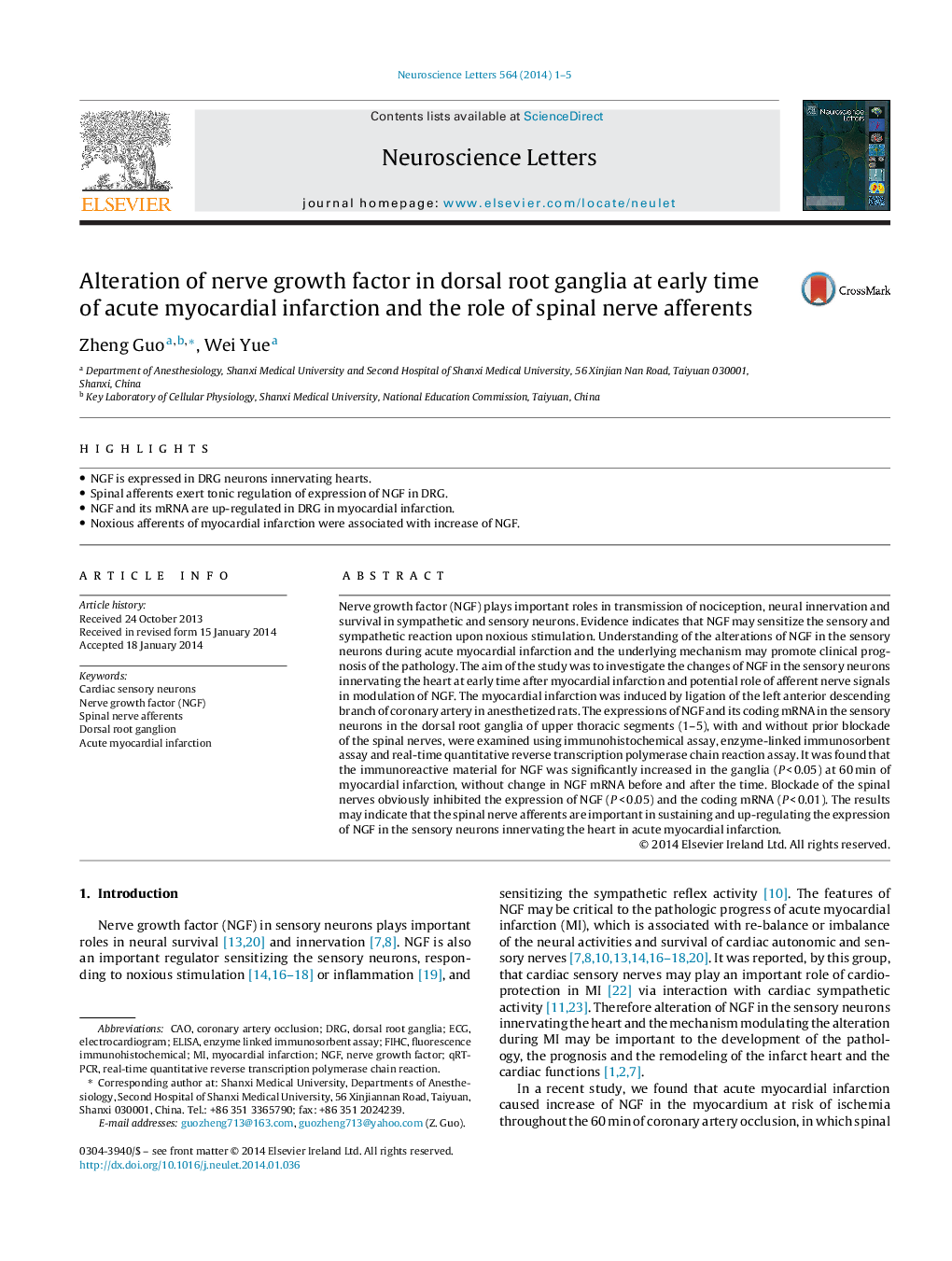| Article ID | Journal | Published Year | Pages | File Type |
|---|---|---|---|---|
| 6282223 | Neuroscience Letters | 2014 | 5 Pages |
Abstract
Nerve growth factor (NGF) plays important roles in transmission of nociception, neural innervation and survival in sympathetic and sensory neurons. Evidence indicates that NGF may sensitize the sensory and sympathetic reaction upon noxious stimulation. Understanding of the alterations of NGF in the sensory neurons during acute myocardial infarction and the underlying mechanism may promote clinical prognosis of the pathology. The aim of the study was to investigate the changes of NGF in the sensory neurons innervating the heart at early time after myocardial infarction and potential role of afferent nerve signals in modulation of NGF. The myocardial infarction was induced by ligation of the left anterior descending branch of coronary artery in anesthetized rats. The expressions of NGF and its coding mRNA in the sensory neurons in the dorsal root ganglia of upper thoracic segments (1-5), with and without prior blockade of the spinal nerves, were examined using immunohistochemical assay, enzyme-linked immunosorbent assay and real-time quantitative reverse transcription polymerase chain reaction assay. It was found that the immunoreactive material for NGF was significantly increased in the ganglia (PÂ <Â 0.05) at 60Â min of myocardial infarction, without change in NGF mRNA before and after the time. Blockade of the spinal nerves obviously inhibited the expression of NGF (PÂ <Â 0.05) and the coding mRNA (PÂ <Â 0.01). The results may indicate that the spinal nerve afferents are important in sustaining and up-regulating the expression of NGF in the sensory neurons innervating the heart in acute myocardial infarction.
Keywords
DRGCaOFIHCqRT-PCRNGFdorsal root ganglionenzyme linked immunosorbent assayMyocardial infarctionECGelectrocardiogramcoronary artery occlusionELISAAcute myocardial infarctionnerve growth factorNerve growth factor (NGF)real-time quantitative reverse transcription polymerase chain reactiondorsal root ganglia
Related Topics
Life Sciences
Neuroscience
Neuroscience (General)
Authors
Zheng Guo, Wei Yue,
